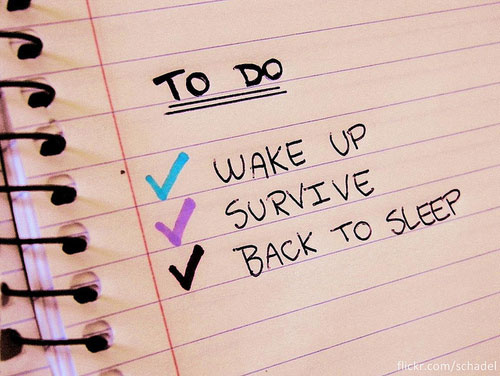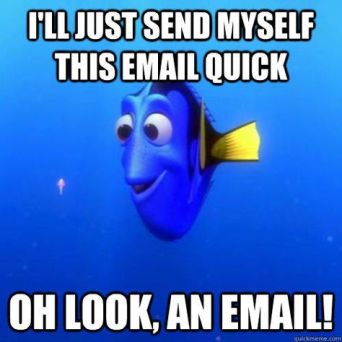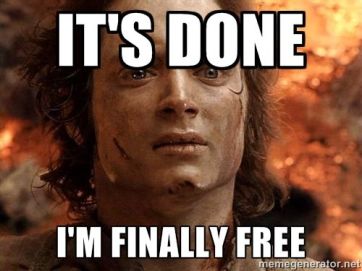“Take a minute to think about the most valuable things in life. If you are like most people, your list includes things such as family, friends, fitness and finances (money).
Now, how would you rank these things on your list? It might surprise you to discover that many of those who are considered highly successful all rank the same thing at number one: time.
Why do these people consider time to be such a valuable asset? Shouldn’t health be No. 1? Well, think about it: You can be healthy, and then get sick, and then regain your health.
How about money? You can lose all your money, and then you can make it all back.
Friends are important, and yet, how many friends did you have back in college that you no longer keep in touch with? Or even people who were guests at your wedding, and that was the last day you ever saw them? Yes, friends are prized, yet we lose them and make new ones all the time.
Your spouse might mean the world to you. And yet, 50% of married people get a divorce, and many divorced people find a new husband or wife that is suddenly the love of their life.
But time… You can never lose time and get it back again. You can’t spend time and go earn more of it. You can’t buy it, rent it, or borrow it. Use it wisely and enjoy the benefits. Squander it, and it’s gone forever.”
Kevin Kruse in 15 secrets successful people know about time management
Monday, 9 AM. First thing I do, I check my e-mails. I read all of them, answer to the ones I can answer quickly, leave the rest in my mailbox and I “unread” the most important ones.
Next thing, my to-do list: I try to find the things that can be quickly done. “Plan a meeting with Sam”. Nice, I send him a doodle and start the new task. What a nice feeling, I’ve removed 5 of the 19 to-dos! Meanwhile, I’m regularly checking my mails, I’m surfing on LinkedIn, checking messenger. Oh, time is flying! All the other to-dos are boring, I’ll do them tomorrow. “How was your weekend”? Oh, it’s Arwen, let’s chat. And… it’s 11 AM.
What’s wrong about this? Well, everything! Until a few weeks ago, I thought I was efficient as I could combine different professional tasks in a fast way. Oh how wrong I was. I still had so much to learn on time management (and still do as a matter of fact). Recently, by reading the book “15 secrets successful people know about time management by Kevin Kruse”, listening to various “Entreleadership” podcasts on Spotify and having some discussions with friends, I realised what is wrong with the picture I described above.
Let me tell you some efficient tips I learned these last few weeks:
Be a morning person

Even if there are theories saying that you should wake up late and start working late, I’m more convinced, in our society where school starts at 8 AM, that you should have a healthy morning routine as it will boost you and make you more efficient. Of course, the routine is different for every person, but this works for me:
- 6.30 – 6.40 : Waking up. Don’t snooze please, that’s not helping.
- 6.40 – 7.00: 15 minutes exercises. Exercises in the morning enhance your metabolism and improve your physical (of course!) but also your mental energy.
- 7.00 – 7.20 : Preparing breakfast and lunch. You can also prepare your lunch the day before if possible.
- 7.20 – 7.40 : Breakfast. Currently I’m losing a lot of time while eating my breakfast, because, pumped with energy, I start interesting discussions with my wife about all kinds of topics.
- 7.40 – 8.00: Prepare & leave. Finally, when my wife tells me I talk too much, I take my shower, get myself ready and leave for work.
Use your morning time wisely
Before anything else, when I arrive in the office, I take 15 minutes to plan my day:
- I try to avoid meetings in the morning.
- The activities where my full attention is needed are planned in the morning (R&D, working on mission statement & core values, budgets, etc.)
- The afternoon is for meetings, planning, mails, phone calls, etc.
Then I quickly check my inbox, without opening any mail, just to see if there is something urgent that would change my planning for the day (most of the time you can see it while reading the subject line). After that, it’s time to work!
Stop making a to-do list, start planning a to-do list

“I will add it to my to-do list”. Everyone has said or heard that often in his/her life. Do you know what the problem is with a to-do list? It is time independent. It means that you can have as many to-dos as you want in your list. What’s the result of that? You try to do some of them but never have time or motivation for all of them. In the meantime, you are stressed because you still have a never-ending list and you don’t know when you will be able to complete all these tasks.
Let’s change this!
- Start writing your to-dos as actions
- Plan them in your agenda as an actual event (I give my to-do events a specific purple colour, so I know it’s not a meeting but it’s a to-do). This provides me the opportunity to think about when can I work on this to-do, and how long it will take.
In conclusion, I do keep a to-do list when I’m not able to plan my to-dos, but every morning, I plan the to-dos in my agenda and then remove the items from my to-do list. No “damn I did not finish all my to-dos”, or “when will I able to do all that”.
Don’t be connected all the time
Checking your mails three times a day is enough. If it’s really that important, they will call, believe me. Do you have your phone constantly connected and are you getting notifications of mails, WhatsApp, messenger, etc.? Well remove automatic syncing, or keep your phone on silent mode and face down on your table.
I keep the sound for phone calls, but mute the rest. In that way, I can still hear the phone calls, but all the other things can wait until I want to check my phone during a break. And in the meantime, I’m not disturbed during my work and can really focus and work efficiently.
The mail routine

First, try to avoid sending mails. It costs you more time to type than to talk. And even if you sent the e-mail, you will waste much more time than if you had called. Conclusion: call if possible, you’ll love it.
When mail is the best option, I have a very specific mail routine that helps me keep track of this communication tool that has lost all its effectiveness.
- All team discussions are not done by mail but through Slack. I refuse to send (and receive) mails from my team members, except if they really need to put me in CC. Slack, if well organised, is a great tool to communicate. If we need to discuss a mail someone received, we transfer that mail to slack and discuss it there.
- If you read, you act. Once you open a mail, don’t “unread” it again, act immediately! You lose a lot of time when you read a mail, do nothing, and read it again a few hours later. Why did you read it for the first time? How did that help you?
- How do you act? You reply, or you plan it to in your agenda and you delete/archive/file it. If you need to do some work first before being able to answer it, then plan that task in your agenda, and move the mail to an agenda item so that you plan a reply.
- Empty your inbox! The feeling of an empty inbox is priceless. So, after replying or planning your mail, file it into a folder.
- Follow your sent items. How often do you send a mail, and forgot that you were waiting for a reply? And by the time you realise that, it’s already too late. What I do, in order not to fill my to do list with follow-up e-mails, I put my important sent mail in a folder (“TO FOLLOW”) where I’ve added a conditional formatting that highlights the mails in red if they are older than x days, for example 5 days (https://www.datanumen.com/blogs/auto-highlight-outlook-emails-based-ages/) . Every day, after lunch, I check this folder and send a reminder for all mails that are in red. Or I call.
Feel free when you go home
At the end of my day, I take 15 minutes to reflect on the day and do following last things.
- I empty my mailbox
- I plan my following day
- And I also try to plan the rest of the week, but by keeping buffers to be able to add things (meetings, tasks, etc.) when necessary.

Planning a to do list in your calendar, neglecting your smartphone while working, avoiding sending mails and replying to mails in a structured way (without spending too much time on it) are just a few of the tips that could enhance your productivity. Don’t forget, however, that you should stay true to yourself and try to find a ritual where you feel comfortable. In the end, it’s all about avoiding losing time on unnecessary things so that you can focus on what matters the most: your business but also family and friends. And that’s so much more valuable than money.
Bonjour, ceci est un commentaire.
Pour débuter avec la modération, la modification et la suppression de commentaires, veuillez visiter l’écran des Commentaires dans le Tableau de bord.
Les avatars des personnes qui commentent arrivent depuis Gravatar.